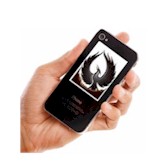|
|


IVR Solutions
This section of our technical library presents information and documentation relating to IVR Development and custom IVR software and products.
Business phone systems and toll free answering systems (generally 800 numbers and their equivalent) are very popular for service and sales organizations, allowing customers and prospects to call your organization anywhere in the country.
The PACER and WIZARD IVR System is just one of many DSC call center phone system features..
What is Interactive Voice Response?. An Interactive Voice Response (IVR) processes inbound phone calls, plays recorded messages including information extracted from databases and the internet, and potentially routes calls to either inhouse service agents or transfers the caller to an outside extension.
Contact DSC today. to learn more about our IVR services and IVR application development software.
Consumers Want a Shorter Path to Service
A new study indicates growing frustration with menu-driven customer service options.
by Jason Compton
Key assumptions about the precise values consumers place on their service experience are challenged by a new customer service study conducted by Connell+Associates in collaboration with Creative Strategies.
About 750 Internet users were asked to answer a series of questions about the quality and ease-of-use of the customer service options they use across five delivery mechanisms, including live telephone support, email, and Internet chat. Interactive voice response (IVR) telephone systems and online FAQ resources are often considered mutually beneficial to service providers and consumers, as they provide both service cost savings and instant answers at the touch of a few buttons or mouse clicks. Yet survey respondents indicated the lowest levels of satisfaction with IVRs and FAQs.
Three in five respondents indicated that they found IVRs frustrating to use, while about a third were frustrated with FAQs--higher levels than reported for any other service channel. "When people use customer service, their experiences are tending to trend so poorly right now, and they remember the company, and remember it in a very unflattering way," says Sean Connell, president of Connell+Associates. "The good news is that people still expect good service, they haven't become so cynical yet that [they] flat out say 'I expect it to be awful.'"
While live telephone contact, the classic support mechanism, scored high for satisfaction, live online chat actually achieved the overall highest approval rating. "To talk to somebody live on the phone, a lot of the time you have to go through an IVR menu to get to an operator," Connell says. "[Chat] is immediate, and I get my information right now."
The other surprise finding was that email scored considerably better than either IVR or FAQ, with a 52 percent satisfaction score, despite the substantial lead times that sometimes occur with email inquiries. The data seems to indicate that customers would prefer a short path to performing their half of the service interaction, rather than navigate the menus of IVR and FAQ. "What I'm taking away is not that email is great, but that automated telephone and FAQ are awful," Connell says.
Regardless of how companies choose to deploy their service strategy, they would do well to be aware of the survey findings, especially considering that nearly all consumers consider service critical, according to the survey. Ninety-three percent of respondents said that their customer service experience directly impacted their opinion of the companies they do business with, and 89 percent agreed with the statement "It should be easy for companies to provide good customer service." Whatever challenges customers may present through their desire to be instantly recognized and equally served through any channel at any time, they are not likely to be sympathetic to the vendor's struggle to deliver service at a reasonable cost.
"There are two components to good customer service: One is getting the information I want, and the other is getting it right now," Connell says. "Every time you make me go through an additional step, the less good I feel about my customer service experience."
What Is IVR?
 IVR - short for Interactive Voice Response - is a technology that automates interaction with telephone callers. Enterprises are increasingly turning to IVR to reduce the cost of common sales, service, collections, inquiry and support calls to and from their company.
IVR - short for Interactive Voice Response - is a technology that automates interaction with telephone callers. Enterprises are increasingly turning to IVR to reduce the cost of common sales, service, collections, inquiry and support calls to and from their company.
Historically, IVR solutions have used pre-recorded voice prompts and menus to present information and options to callers, and touch-tone telephone keypad entry to gather responses. Modern IVR solutions also enable input and responses to be gathered via spoken words with voice recognition.
IVR solutions enable users to retrieve information including bank balances, flight schedules, product details, order status, movie show times, and more from any telephone. Additionally, IVR solutions are increasingly used to place outbound calls to deliver or gather information for appointments, past due bills, and other time critical events and activities.
|




 IVR - short for Interactive Voice Response - is a technology that automates interaction with telephone callers. Enterprises are increasingly turning to IVR to reduce the cost of common sales, service, collections, inquiry and support calls to and from their company.
IVR - short for Interactive Voice Response - is a technology that automates interaction with telephone callers. Enterprises are increasingly turning to IVR to reduce the cost of common sales, service, collections, inquiry and support calls to and from their company.